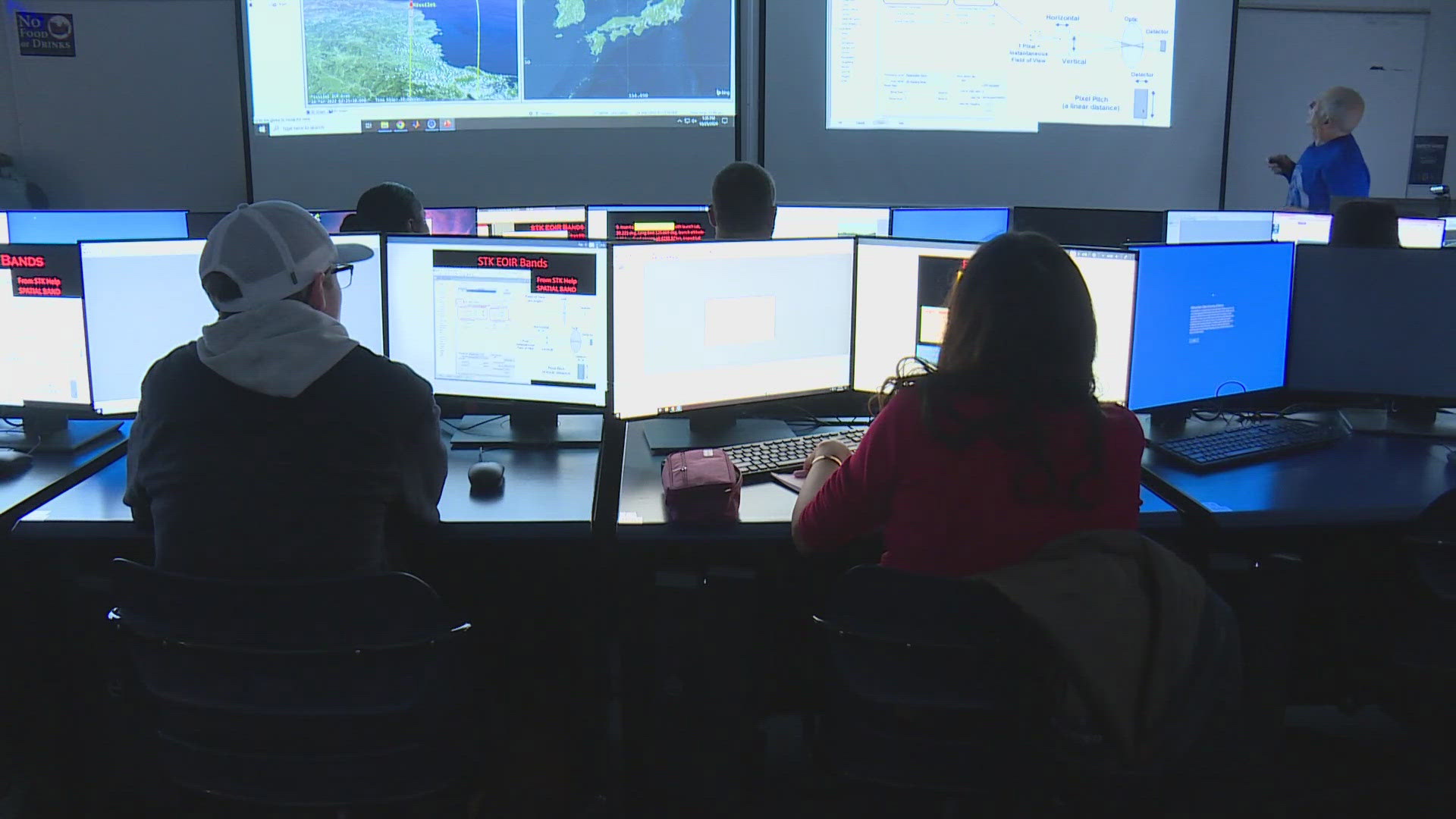DENVER — From Buckley Space Force to Lockheed Martin, Colorado's aerospace industry is growing. That has universities bringing in the best and the brightest to help fill those career fields.
At Metropolitan State University of Denver, a growing program called SpaceTech Scholars is helping diversify those industries.
"There more you do, the more complex it's going to become," said José López, a senior lecturer at MSU Denver.
Inside López's classroom, what students are learning may not be rocket science, but it's pretty close.
"Today's lesson is going to be to design an infrared sensor," López said.
López is working with students going into aerospace by passing on his lifetime of knowledge to the next generation.
"That's going to be the future," López said. "I have some students that are already working in companies that are talking about mining asteroids."
These classes have students like Diana Cano-Villela riveted.
"I've been so surprised by how fast I've been able to learn [in] this aerospace class," said Cano-Villela, a senior at MSU Denver. "It's fascinating. It really is."
Cano-Villela is considering careers in aviation and aerospace. Those futures feel possible because of the SpaceTech Scholars program.
"I really wouldn't be able to fly or even attend this school if it weren't because of all these programs," Cano-Villela said.
"Where there's a will, there's a way for our students and we want to let them know that it's accessible," said Robert De Mata, project manager of the SpaceTech Scholars program with MSU Denver.
A grant from the Department of Education is helping the SpaceTech program offer scholarship to dozens of students. It's creating a pipeline for underrepresented and diverse students to fill careers in Colorado's growing aerospace industries.
According to a 2021 Aerospace and Defense Workforce study, it finds the aerospace industries are overwhelmingly made up of white men.
"The work that we're doing, it's not just a matter of equity and access, it's a mission critical need for some of these companies to build out diverse workforces and be relevant for the next 100 years as these aerospace space missions are demanding," De Mata said.
But making the industry more diverse is work López believes starts in the classroom.
"If you don't get them interested, all the quotas for diversity [are] not going to help you," López said. "You need to get them interested, they need to know this is not 'nerd work'. This is something that can be fun, that can be enjoyable."
That spark of interest has already been lit inside students like Cano-Villela.
"When I entered this school, like started here, I didn’t believe [I was] capable of all these things but just through classes and encouragement from other students and joining all these clubs and organizations, I was like, 'I can do this,'" Cano-Villela said. "Like, it is hard, but it's not out of my reach."
Last year, MSU Denver had 38 students in the SpaceTech Scholars program. This year, it grew to 60 students. That's the maximum number allowed under the grant.
But, SpaceTech Scholars is also using that grant money to get experts in aviation and aerospace into middle and high school classrooms to get kids excited about STEM early on in hopes the program will inspire kids to dream big for generations to come.

